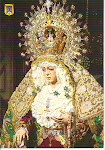
19 February
Thursday,
Sponsor’s Gala
20 February
Friday
EXSULTATE
Three Motets
F. Mendelssohn
Veni Domine op.39 no. 1
Laudate pueri Dominum op. 39 no. 2
Surrexit pastor bonus op. 39 no. 3
____________
Three Eucharistic prayers of St. Thomas Aquinas
A. Consolacion II
Tantum ergo
Pange lingua
O salutaris hostia
Las Pinas Boys Choir
Alejandro Consolacion II, organ
Armando Salarza, conductor
Tiento de medio registro de baxon de sexto tono
F.C. de Arauxo
Three Pieces for a Musical Clock
F.J. Haydn
Allegretto
Menuett – Allegretto
Vivace “Der Kaffeeklatsch”
Toccata V
J.K. Kerll
Christian Iwan, organ
Cordillera Soundscape
K. Benitez
Ambo Hato
A. Espino
Mamayog Akun
F. Obispo
Las Pinas Boys Choir
Armando Salarza, conductor
Great Organ Mass in E-flat Major
F.J. Haydn
Missa solemnis in honorem












